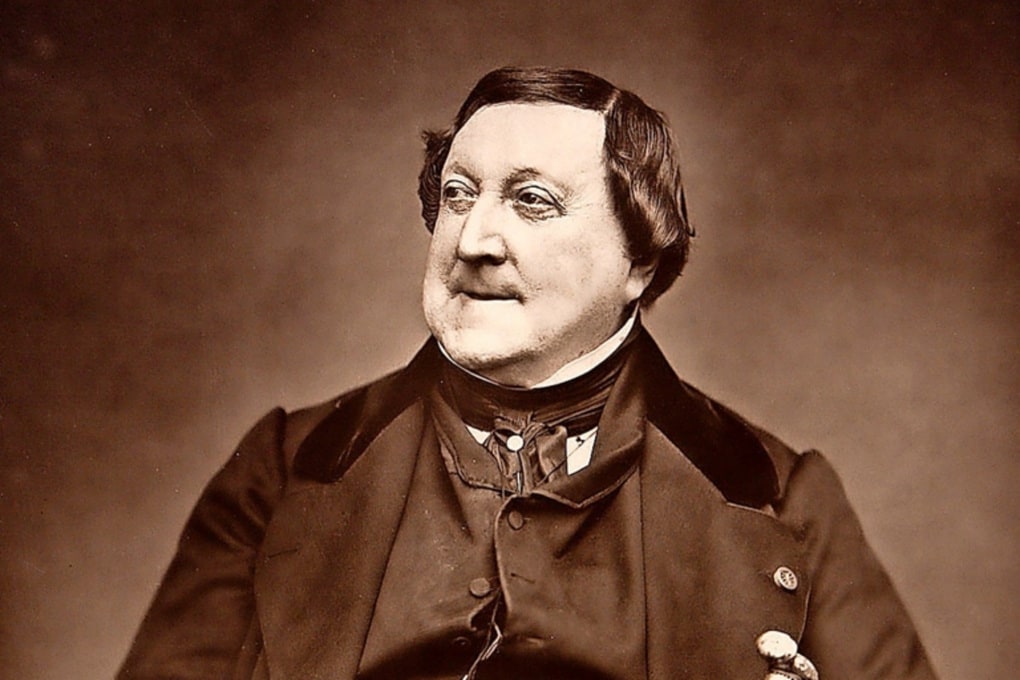Gioacchino Rossini was born in Pesaro on the 29 th of February 1792, three months after Mozart. Just like him, he was extremely talented already at a young age, an opera’s young genius. He started composing at the age of 14 and he wrote 39 operas in just 19 years. Among them we could mention: The Barber of Seville, The Italian Girl in Algiers, The Thieving Magpie, Cinderella, The Turk in Italy, Semiramide and William Tell.
Gioacchino Rossini was a man with a multi-faceted personality. He has been described as a man with a terrible temper, prone to depression, angry and hypochondriac, and he loved good food, women and the good life. Just like many other geniuses before him, he was a man with a complex spirit, which will often bring him to suffer from depressive crisis.
Rossini’s style is characterized by a unique bright rhythm, almost frenetic. This differentiates him from the other authors of the VIII century, who have in common with him only some stylistic features and formal conventions. The “Rossinian crescendo” makes his music perfect for comic operas, but it is also a good fit for dramas. His operas are usually divided in two acts: the first is longer and more complex, while the second is shorter and lighter.
In more modern times, there has been a Rossinian Renaissance, which refers especially to the period around the 70s when many Rossini’s operas were rediscovered by Philip Gosset, Alberto Zedda and many others. However, even in the 40s Vittorio Gui started to perform the less known operas by Rossini or the ones that had been forgotten. The opera resurrected by the interpretation of Maria Callas is still today performed all over the world.
Moreover, Rossini is still celebrated today with the annual Rossini Opera Festival in Pesaro.
Rossini was an exceptional artist, an innovator and a symbol for the lyric opera. Mazzini defines him as a “titan of power and audacity” and because of his early talent and rapid composition skills he has been called “the Italian Mozart”. Rossini abandoned suddenly his career in 1829 and he retired to private life in the countryside of Passy, where he died in 1868.


